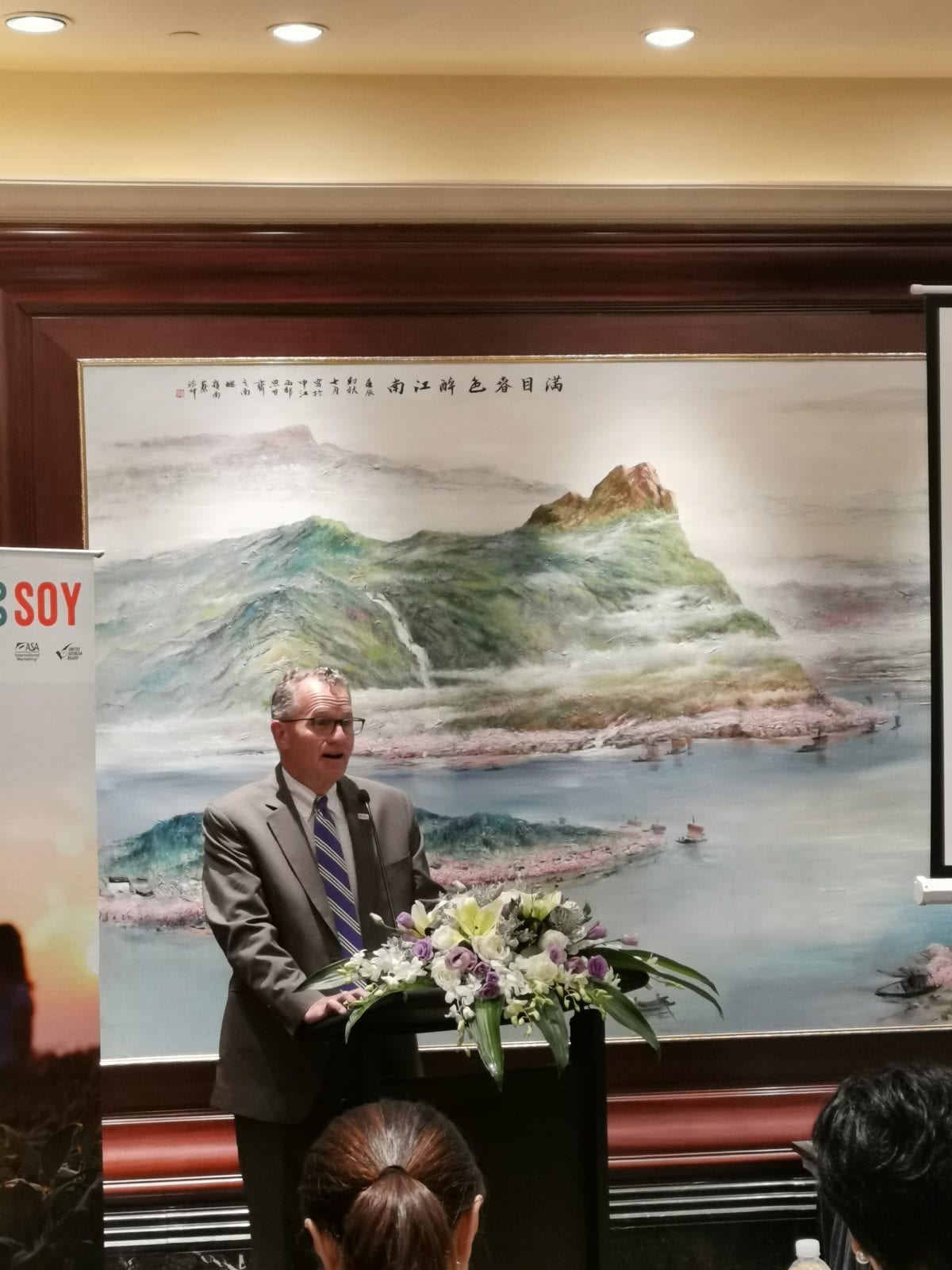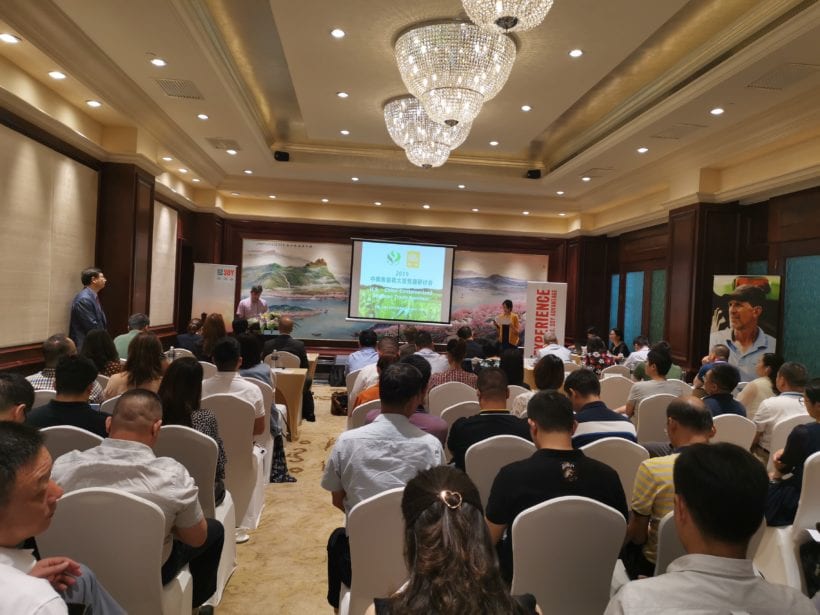U.S. Soy Customers Attend 2019 U.S. – China Containerized Soybean Trade Seminar in Shanghai
- Category:
- General News

On August 9, USSEC China successfully held the U.S. – China Containerized Soybean Trade Seminar in Shanghai. 70 representatives from exporters, full-fat soybean manufacturers, feed millers, shippers, and trading companies participated in this seminar.
Bobby Richey, Minister Counselor of Agricultural Affairs from the U.S. Embassy in Beijing, delivered opening remarks to the audience, expressing sincere thanks to the participants as solid supporters of U.S. soybean farmers. Mr. Richey also commented, “More important is to reaffirm relationships and share goals. The U.S. – China soybean partnership will continue and thrive.”
Derong Cao, president of the China Chamber of Commerce for Import and Export of Food stuffs, Native Produce and Animal By Products (CFNA), stated, “Although the U.S. – China relationship is encountering some frustrations, we highly appreciate the fact that this seminar is still being held on time. This sends out a significant positive signal from our industry.”
USSEC CEO Jim Sutter expressed great appreciation for the past 37 years of friendship with China’s crushing, feed milling, and livestock industries expressing his belief that the U.S. Soy Advantage in nutrition and sustainability will bring huge value to the Chinese industry. Regarding containerized soybean trade, it can be more specific with origins, and more flexible on logistics and capital economics. Mr. Sutter emphasized that “U.S. soybean farmers all support a fixed trade deal between the U.S. and China, and they all look forward to a long-term partnership with China.”
Tiffany Wang, client manager of Maersk China, shared her knowledge regarding containerized grain transportation in the U.S and future development. Jennifer Li, China representative from Scoular, delivered a talk on containerized soybean import practices.
Xiaoping Zhang, USSEC Regional Director – Greater China, provided an update on the U.S. soy market and the U.S. Soy Sustainability Assurance Protocol (SSAP). Information about the legal system, best management practices, independent third party audit, and benefits to soy supply chain regarding U.S. soybean sustainability left a strong impression on the audience.
Pingtao Kong, Secretary General from China Animal Husbandry & Veterinary Society, provided updates on China Feed & Livestock Industry status, especially regarding African Swine Fever (ASF).
Most participants viewed this seminar as a great opportunity to strengthen their knowhow on containerized soybean purchase and to network with the whole supply chain. They all sincerely hope a trade deal can be concluded soon between U.S and China so that their business will get back on track sooner rather than later.

